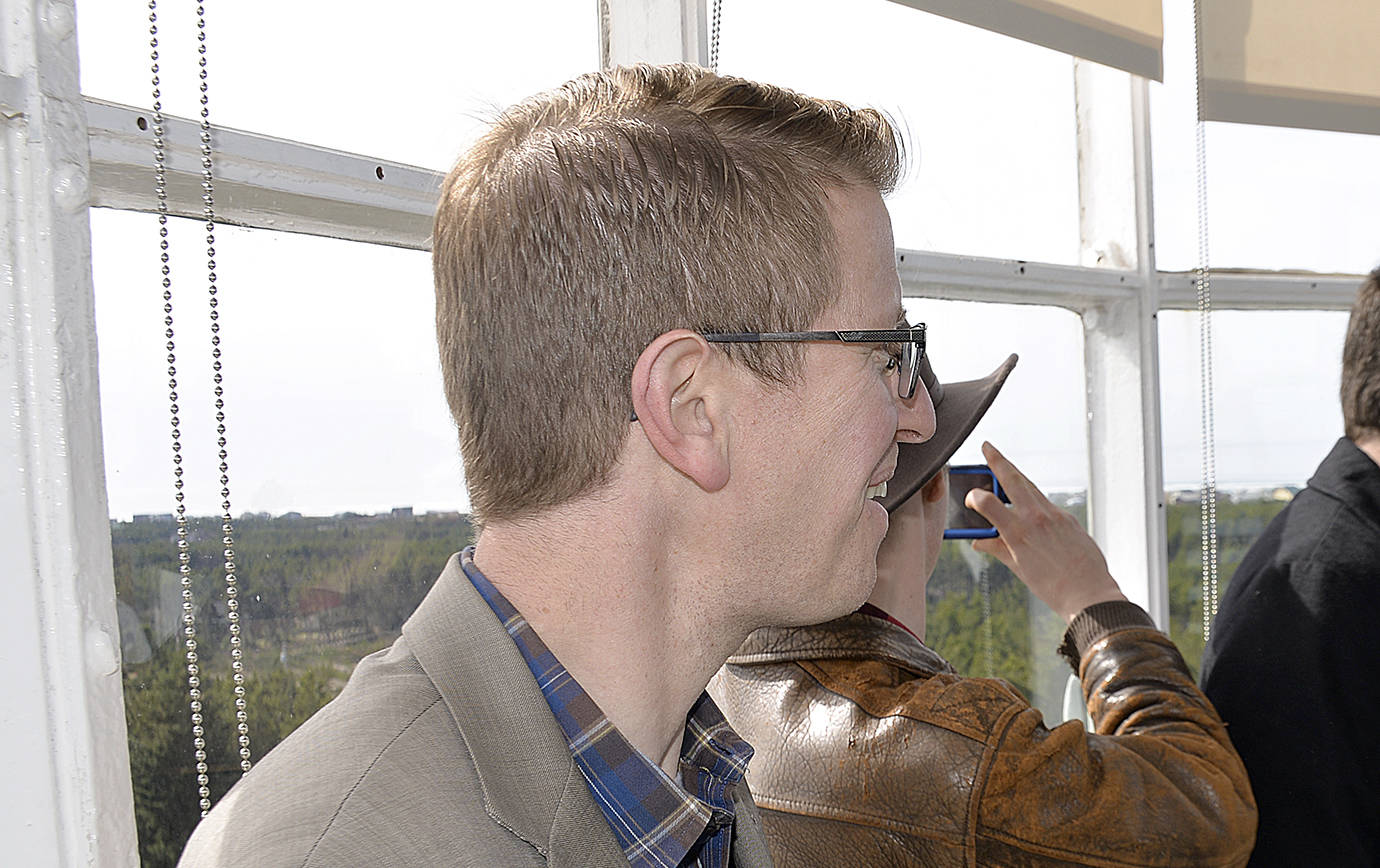The passage of the Maritime Washington National Heritage Area Act has created “a powerful tool for promoting local tourism and economic development,” said Congressman Derek Kilmer, D-Gig Harbor, as he stood outside the Grays Harbor Lighthouse in Westport Saturday.
Kilmer introduced the Act five years ago; it passed in February as part of a bipartisan public lands bill, which was signed into law March 12. Sen. Maria Cantwell was a major supporter on the Senate side.
“It is a tool that expands eligibility for federal grants, a tool that can help with tourism promotion, marketing coordination and assistance with the operation of museums and visitors centers,” said Kilmer. “There is no better place to hold this event than the Grays Harbor Lighthouse, a beacon for fishers and shippers for 120 years and still standing proud, just like this community.”
John Shaw, executive director of the Westport South Beach Historical Society, introduced Ocean Shores Mayor Crystal Dingler prior to Kilmer’s presentation. Dingler said the Act’s passage is “an exciting opportunity for all of us. This is something we have needed for years and years and years.”
Joining Dingler and Kilmer were State Rep. Brian Blake, D-Aberdeen; Grays Harbor County Commission President Randy Ross, and Aberdeen Mayor Erik Larson. All three Port of Grays Harbor commissioners were also in attendance: Commission President Stan Pinnick, Tom Quigg and Phil Papac.
Kilmer said Grays Harbor was the logical choice to celebrate the Act’s passage. “This is where the sea — its history, heritage, and economic benefit — is woven into our community fabric,” he said. “Salt water runs through our veins here.”
The Maritime Washington National Heritage Act will be administered through the Washington State Department of Archaeology and Historic Preservation. Projects related to the Act in the area from 14 counties, 19 tribes and 30 port districts will be submitted to the state agency for consideration.
Kilmer said there are 49 other National Heritage Areas in the country; this is the first such designated area in the Pacific Northwest. Assistance from the program can come in the form of help with website and social media presence, preservation of historical sites, and federal grants, among other things.
“It’s a tool for preserving sites and landmarks that are part of the historical legacy of this community and recognize our fisheries and its ties to the water as part of our future too,” said Kilmer.
Kilmer and others took a tour of the lighthouse, at 120 feet the tallest in Washington and third tallest on the West Coast, climbing the 135 stairs to the top, where volunteers were polishing the massive light itself.
“I’ve got to mention this amazing lighthouse, where a dedicated community and an awesome historical society recognized that if we don’t protect our heritage, we can lose it,” said Kilmer. Ownership of the lighthouse was transferred to the historical society in 2004.


